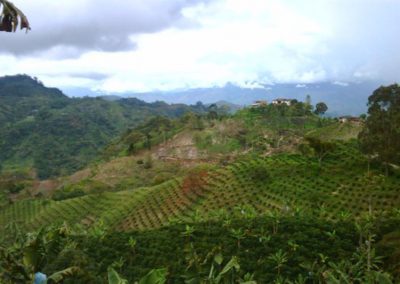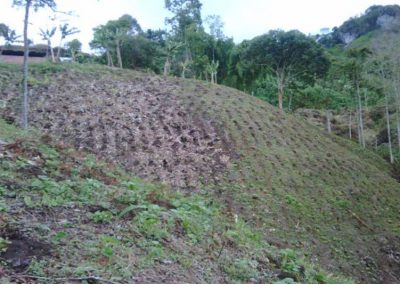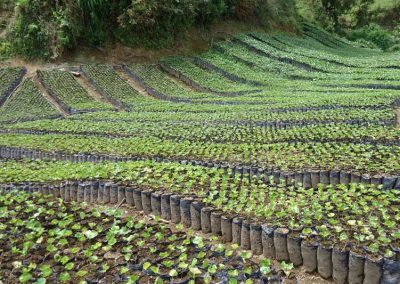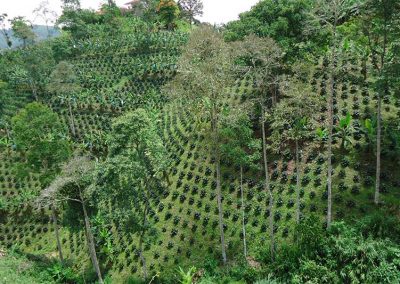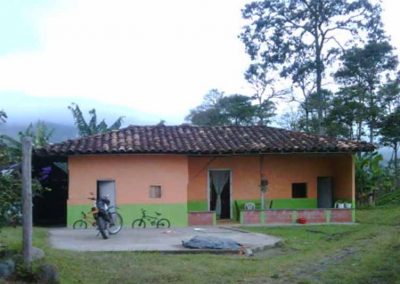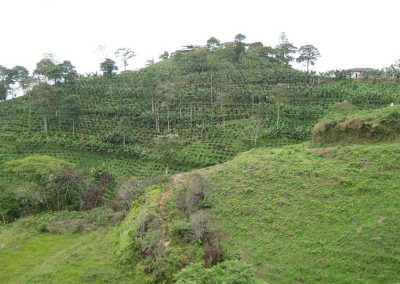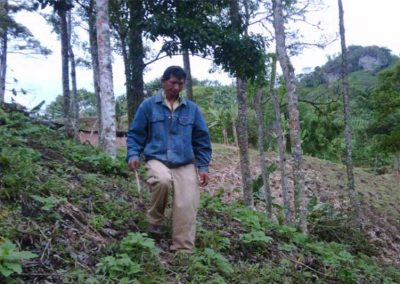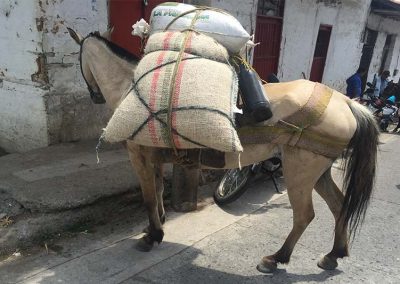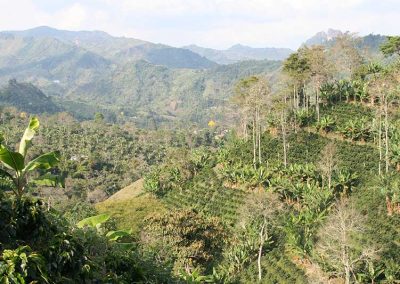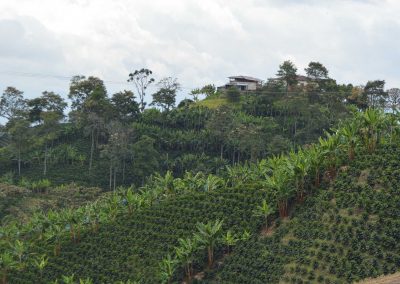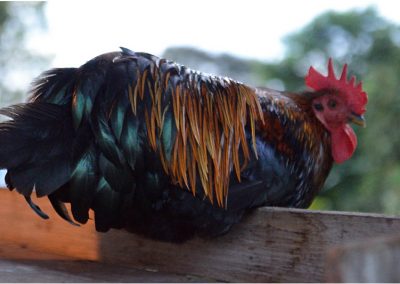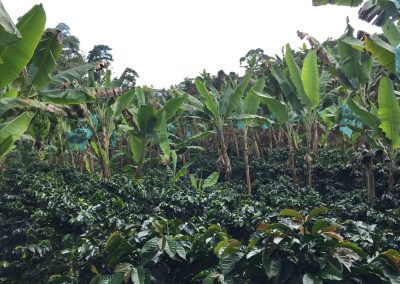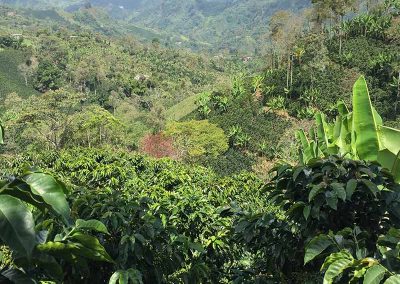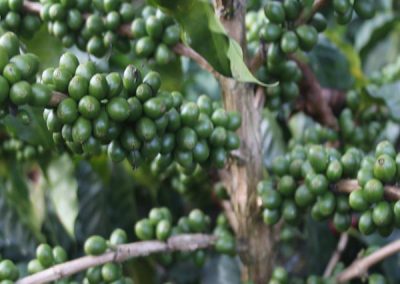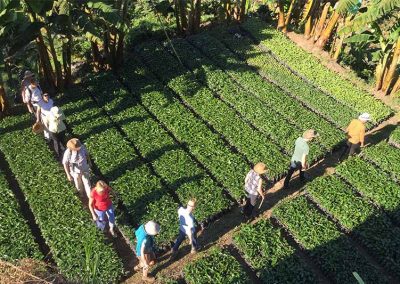History of Finca Las Cruces

They were to find a region with the ideal conditions for growing coffee, and the timing was good. As far back as the 17th century coffee was growing in popularity across Europe, having started with the importation of coffee from Yemen by Venetian traders, but it was in the 19th century that cultivation started in South America – including in the coffee region of Colombia.
Both set of our grandparents came from Fredonia, Amaga and La Mina to this area, but it was my grandfather Juan Bautista Alvarez Correa who settled in Quinchia and build up his family and agricultural base there. I’ve been told stories by my mother that as a young lady she would set off from this farm at 2am to travel on horseback to other fields far in the mountains, to go and cook for all the workers that were preparing the land to plant the first coffee fields in those areas
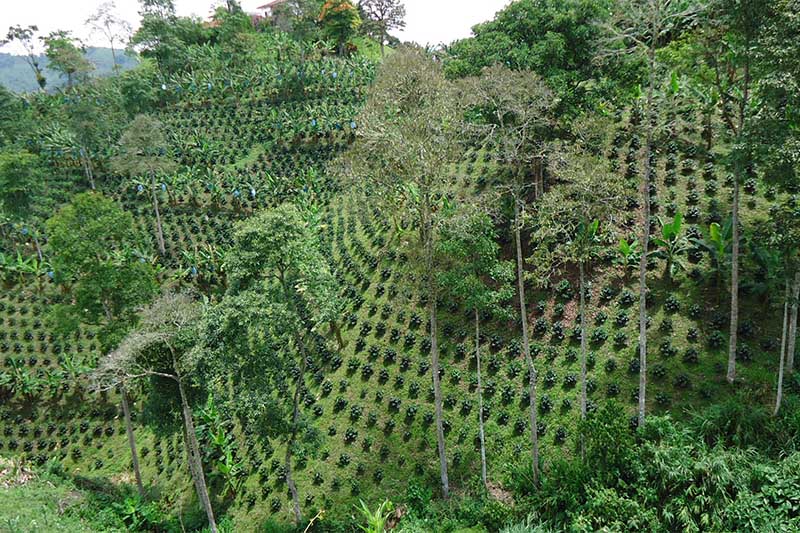
Another factor was that our father had always been keen to keep old fruit trees, and to plant new ones e.g. walnut, instead of intensively farming the land. We have maintained that tradition, and still enjoy it.
So even though key family members were not living in the area we made it our goal to put the farm back into production but in a very sustainable and organic way. After some years of preparing the land, and with the help of the Coffee Federation and local agricultural workers, we have established good crop rotation to bring the farm back into full production.
For us as a family the welfare of our workers is very important, so we have improved the living conditions on the farm in various stages. We believe that Colombia is a very complex society and the only way of making significant changes is through education, for this reason we have supported and funded some family members of our workers in various education programmes including university. All members of the family still visit Quinchia on a regular basis – even from London from time to time. We still have many old friends in the town, and other connections, and it’s supremely important to us to maintain that relationship with the town, its people, the land and the farm.
The history of this farm can be associated with the history of contemporary Colombia.
The origins of coffee production in Colombia are in the post-colonial era. It was in the second part of the 19th century that a new wave of colonization reached the present-day coffee region, as families moved south from the Antioquia regions, looking for ways to support their families following the downturn in the mining industry in that region. The main factor for these colonizations was to find work on the land, which would allow them to take possesion of the land. This work was mainly carried out by family members.
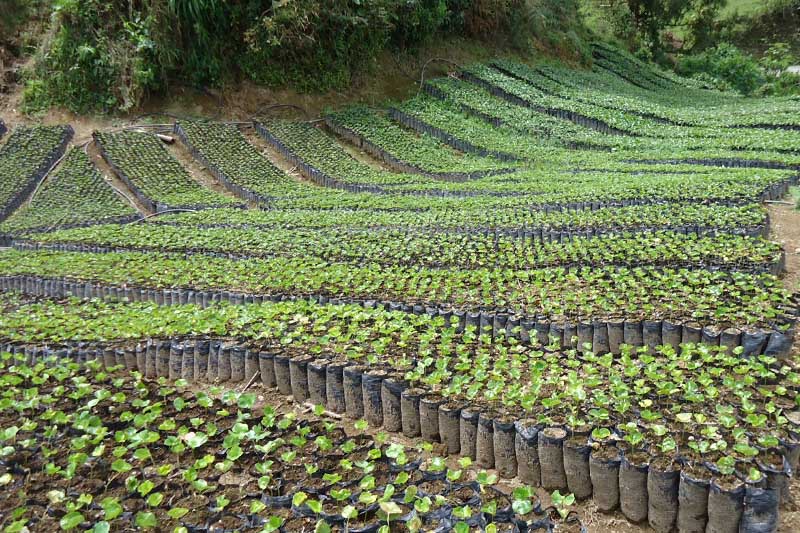
This farm was inherited by my mother, but due the political instability of the late nineties there were a few years when very little attention could be given to it. When our father passed away, it was a crucial moment to decide what to do with the farm – should we sell? However the emotional attachment was strong and we decided to keep the farm and to try to put it into sustainable production.
Another factor was that our father had always been keen to keep old fruit trees, and to plant new ones e.g. walnut, instead of intensively farming the land. We have maintained that tradition, and still enjoy it.
So even though key family members were not living in the area we made it our goal to put the farm back into production but in a very sustainable and organic way. After some years of preparing the land, and with the help of the Coffee Federation and local agricultural workers, we have established good crop rotation to bring the farm back into full production.
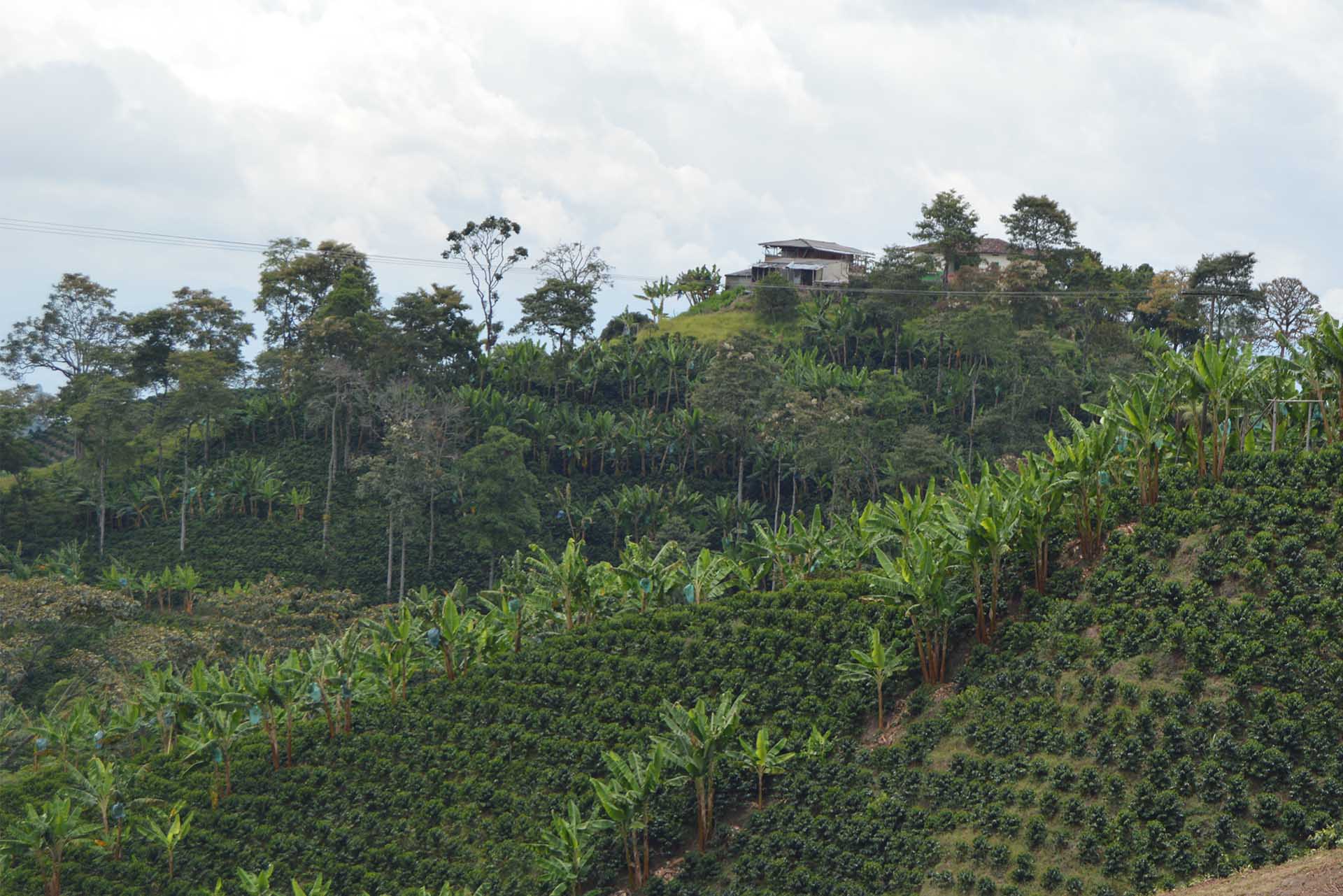
Sustainable Farming
Our father taught us the beauty of nature by growing vegetables in our yard. We’ve kept up with his mantra that “while you grow things you won’t go hungry”, and on the farm we are always planting crops other than coffee, including plantains, bananas, cassava, beans, corn, and various fruits. We also keep part of the farm as a small forest to protect nature.
We have two sources of water from the mountains, looking after them has been a priority, as we use that water in the coffee process as well as a source of water for domestic purposes on the farm.

